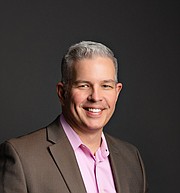County, cities continue impact fee debate
COEUR d’ALENE — Some cities are willing to consider impact fees to support the Kootenai County jail.
But the county’s additional request that cities collect impact fees for the sheriff’s office and county parks and waterways — and withhold building permits until they get proof of payment — appears to have stalled.
The mayors of Coeur d’Alene, Hauser, Hayden, Post Falls and Rathdrum sat down Tuesday morning to discuss the matter with commissioners Leslie Duncan and Bruce Mattare.
Rathdrum Mayor Vic Holmes said there was a time when county commissioners were known to attend city meetings and ask what they could do to support cities.
“Now it feels like the county’s coming to the cities and asking, ‘What can you do for us?’” Holmes said. “I’d like you to consider that maybe you should be supporting cities more than cities are supporting the county.”
The mayors who were present Tuesday expressed willingness to work with the county to support the jail because all municipalities use it. But they questioned the methodology behind the proposed impact fees.
Under Idaho law, impact fees may only be used to defray system improvement costs incurred to provide additional public facilities serving new growth. Impact fee ordinances must also provide detailed descriptions of the methodology by which costs per unit are determined.
Emily Smith, city attorney for Rathdrum, said the connection between population growth and the need for more jail beds is unclear.
“I don’t know if you can make the case that the people moving here are necessarily the ones filling the jail,” she said.
Such an ordinance also appears to be untested in Idaho.
Anne Wescott of Galena Consulting, the Boise-based firm hired by the county to research impact fees, said other counties throughout the state have considered using impact fees to support their jails, including Ada and Canyon counties. But no jurisdiction has passed an ordinance to do so yet.
“We don’t know if it’s going to be defendable in court,” Smith said.
The cities of Coeur d’Alene, Hayden, Rathdrum and Post Falls previously pushed back on the county’s proposal that new city residents fund construction of both city and county park facilities, calling it unfair.
The proposal also appeared impractical. Wescott acknowledged Tuesday that it could be burdensome for cities to collect the fees.
Idaho law allows for governmental entities that are jointly affected by development to enter into agreements with each other for the purpose of collecting and expending development impact fees.
For example, the county and cities recently agreed to collect impact fees on behalf of fire districts and emergency medical services.
“I think it’s much more defensible for us to enter into an intergovernmental agreement,” said Warren Wilson, Post Falls Legal Services director.
Commissioner Bruce Mattare also acknowledged the elephant in the room — an ongoing legal dispute between Kootenai County and several taxing districts over who receives late charges and interest on past due taxes collected from property taxpayers.
Though a judge ruled in favor of the taxing districts last month, including the cities of Coeur d’Alene and Post Falls, and ordered the county to distribute the funds proportionally, Kootenai County Treasurer Steve Matheson has asked the court to reconsider the decision. A hearing on the matter is scheduled Aug. 29.
“Elected officials are their own creatures, in essence, and they can do what they decide to do,” Mattare said Tuesday. “They don’t report to any particular individual, but the constituents themselves. I recognize that as a challenge from the feedback I’ve received from the mayors.”
In their initial response to the county’s request, some cities said any agreement on impact fees will hinge on the county accepting the court’s decision and turning over the funds, “without an attempt, directly or indirectly, to obtain a different result in the Legislature.”



